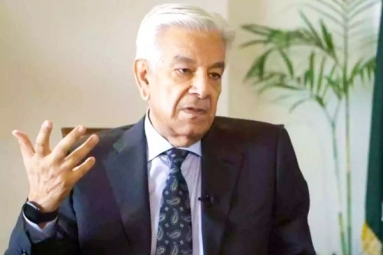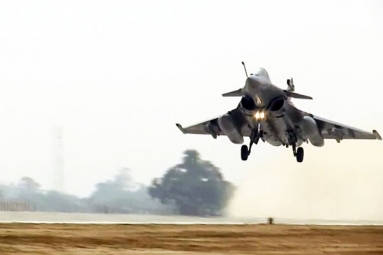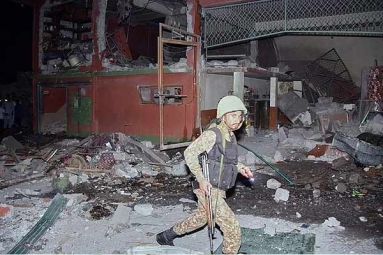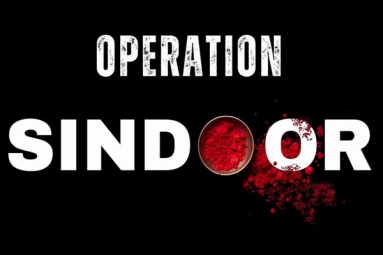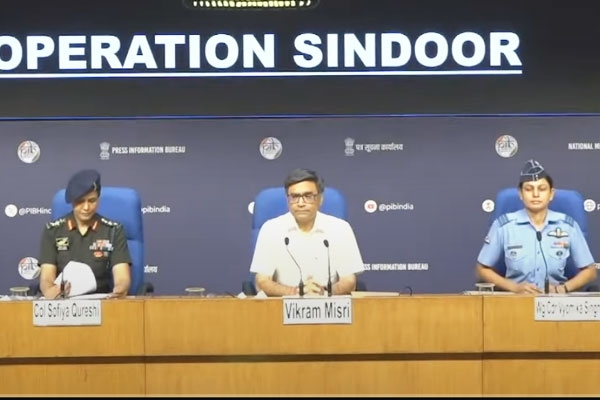
India's briefing today regarding 'Operation Sindoor' conveyed a powerful and important message, highlighted by the leadership of two women officers - Wing Commander Vyomika Singh and Colonel Sofiya Qureshi. They provided insights into the military's precise engagements against terror sites in Pakistan, which were conducted as a counteraction to the Pahalagam terror attack on April 22 that resulted in the deaths of 26 individuals. The operation's name, "Operation Sindoor," pays homage to the women who suffered the loss of their husbands due to this attack, and the decision to have women officers lead the briefing garnered significant admiration as a notable gesture.
Colonel Sofiya Qureshi, in her statement following Foreign Secretary Vikram Misri, emphasized that the selected terror targets were based on reliable intelligence related to their role in cross-border terrorism, clarifying that 'Operation Sindoor' did not target any military installations in Pakistan. She also revealed the destruction of nine terrorist training camps.
Wing Commander Vyomika Singh remarked on India's considerable patience in its reactions, stating that the Indian Armed Forces stand ready to respond decisively to any provocations from Pakistan that might escalate tensions. Wing Commander Singh is an esteemed helicopter pilot within the Indian Air Force (IAF). After initially joining the National Cadet Corps (NCC), she completed her engineering degree and received a permanent commission in the flying branch on December 18, 2019. She has flown helicopters like the 'Chetak' and 'Cheetah' in challenging environments, including high-altitude regions such as Jammu and Kashmir and the Northeastern states, and has participated in numerous rescue operations.
Colonel Sophia Qureshi is a well-decorated officer in the Indian Army’s Corps of Signals and made history as the first woman officer to command an Indian Army contingent during a major multinational military exercise in Pune, one of the largest foreign military drills ever held on Indian territory. Under 'Operation Sindoor', India conducted 24 missile strikes at nine locations—Muzaffarabad, Kotli, Bahawalpur, Rawalakot, Chakswari, Bhimber, Neelum Valley, Jhelum, and Chakwa—resulting in the deaths of 70 terrorists and injuries to another 60 individuals as a reprisal for the Pahalgam attack. According to government officials, this operation extends beyond being merely a military response.
One source described it as a demonstration of strategic determination, stating that through precisely coordinated strikes, India made it clear that it would not accept cross-border terrorism or the complicity of state entities that facilitate such acts. The strikes commenced at 1:05 AM on Wednesday, May 6, and were executed within a swift 25-minute window, targeting nine camps and training sites employing stand-off munitions such as the HAMMER bomb and the SCALP missile, along with other advanced weapons capable of hovering to confirm targets before launching.
According to the government’s view, India's military action constituted a "measured, non-escalatory, proportionate, and responsible" response to Pakistan's backing of cross-border terrorism. In retaliation, Pakistan engaged in what has been described as 'arbitrary and indiscriminate firing' along with artillery bombardment across the Line of Control, resulting in the deaths of 10 civilians in the Poonch area of Jammu and Kashmir. Among the deceased are a 12-year-old girl and a 10-year-old boy, as reported by the Army.
(Video Source: PIB India)



